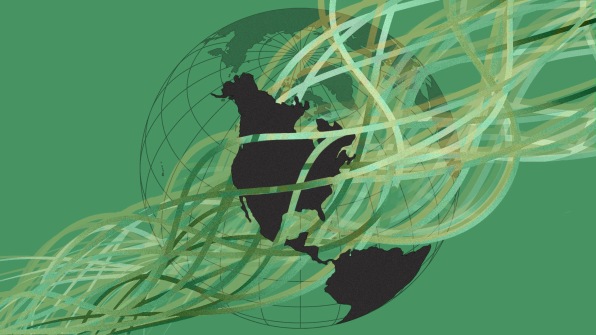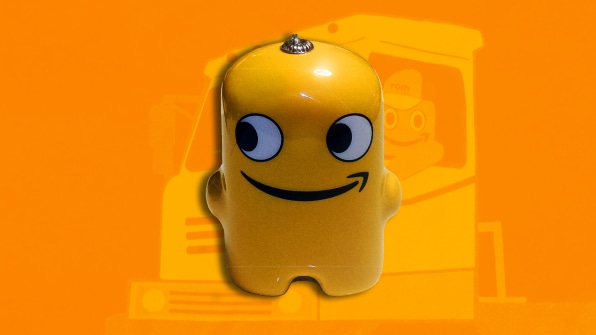Company’s favorite technology stories of 2019 – Fast Company
By Katharine Schwab4 minute Read
The last few years have increasingly been a reckoning for big tech companies, as regulators and regular folks alike have started grappling with the impact that tech is having on both our individual lives and society at large.
2019 in particular was a year of failures, with the blowup of WeWork raising questions about founders with too much power and venture capitalists with too much money. It was a year of disturbing visions of the future, as tech companies extended their already global reach and technology such as facial recognition provided a glimpse into what might transform into real dystopia. It was a year of pushback, as employees at big tech companies as well as ordinary people fought against rising monopoly and concentrated power in the hands of tech CEOs. And it was also a year of reflection, as we celebrated the 50-year anniversary of both the internet and the moon landing.
Here are some of the best stories Fast Company published in 2019 about the history and future of technology—and its impact on society.

50 years ago today, the internet was born in Room 3420
Fast Company senior writer Mark Sullivan takes us back to the room where the internet was born. Today, everything from our smartphones to our garage door openers are nodes on the network that descended from the one that two graduate students tested at UCLA’s campus on October 29, 1969.

Meet Peccy, the bizarre, beloved mascot you didn’t know Amazon had
Yes, Amazon has a mascot—one that’s so loved by its employees that you can find Peccy swag (on eBay, ironically), Peccy memes, and even Peccy-inspired art. But beyond existing as a strange quirk of Amazon’s culture, which has been both deeply criticized and enthusiastically extolled, it is also an apt symbol of the company itself, writes Harry McCracken.

Google’s auto-delete tools are practically worthless for privacy
Google has a suite of tools that allow users to set their data to auto-delete every three or 18 months. But Fast Company writer Jared Newman reported that this feature is little more than good PR for Google: according to marketing experts, by the time three months rolls around, Google has already extracted nearly all the potential value from users’ data. “I feel like them auto-scrubbing data every three months is really lip service,” said one expert.

The fall of WeWork’s Adam Neumann
2019 spelled the downfall of WeWork and its eccentric, charismatic CEO, Adam Neumann. This story by Fast Company contributor Katrina Brooker takes you inside Neumann’s office to understand how the coworking giant he helmed collapsed—with Neumann caught inside. And if you can’t get enough of WeWork drama, read her scintillating follow-up, about the relationship between Neumann and his powerful investor, Softbank CEO Masa Son.

WeWork’s laughably weak Wi-Fi password is downright dangerous
Even before WeWork’s scandals started to hit, it was failing to adequately protect that most basic of amenities at its coworking spaces: the Wi-Fi. Fast Company writer Sean Captain reported in August that the WeWork Wi-Fi has the same username and password at many locations, paired with shockingly dated security underlying it.

Silicon Valley’s psychedelic wonder drug is almost here
Fast Company writer Ruth Reader takes you inside the history of a tiny, less-than-a-year-old startup called MindMed—and how it has acquired a mythical substance known as 18-MC. A derivative of the psychoactive drug ibogaine, 18-MC has the potential to cure addiction and help micro-dosers get their focused fix, all without the extreme swings that come with getting high.

Ring’s smart home plans would sound great if Ring itself was less frightening
After countless reports about the nefarious activities and shoddy security of the Amazon-owned security system Ring, Fast Company writer Jared Newman decided to try the platform out for himself. And while he found that the product does the job, buying into its system feels unsettling, no matter how well Ring actually works.

I became part of the alt-right at age 13, thanks to Reddit and Google
In this harrowing essay, an anonymous teenager writes about his experience falling under the spell of the alt-right when he was working as a Reddit moderator at the ripe age of 13, and how he found his way out again. “My brief infatuation with the alt-right has helped me understand the ways big tech companies and their algorithms are contributing to the problem of radicalization—and why it’s so important to be skeptical of what you read online,” he writes.





